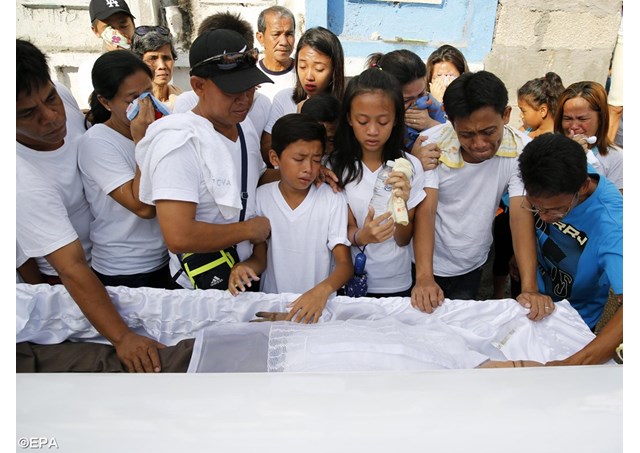
Philippine bishops want positive dialogue with government despite differences

The Catholic bishops of the Philippines held talks with top government officials during which they expressed strong commitment to develop positive relations despite differences over President Rodrigo Duterte bloody war on drugs. The initial meeting was held at the headquarters of the Catholic Bishops’ Conference of the Philippines (CBCP) in Manila on March 31 in what is seen as a major step by the two parties to sort our differences.
Interviewed with ANC television on March 4, CBCP President, Archbishop Socrates Villegas of Lingayen-Dagupan stressed that dialogue was the best way forward. “There are issues where we differ in principle, but we should not allow such differences to prevent us from cooperating such as working for the poor and empowering Mindanao,” the archbishop said. “We should support him on peace-making, alleviating the situation of the poor and everything that is for the benefit of the people,” he said.
The Filipino bishops’ president did not identify the Cabinet officials but said they have made a “breakthrough”, adding that there was a mutual request from both sides to “tone down” attacks against each other. “You stop we stop,” Arch. Villegas said. “You can’t tell us to stop talking when issues are so unchristian and against our beliefs.” “If they stop killings, the so-called disregard for human life, then you can trust that we will tone down statements because we will see that goodwill,” he said. The archbishop added that the bishops are concerned that if they keep their silence and do not protest the killings, “people might think it’s the new normal.” “That,” the prelate pointed out, “is the more worrisome issue when our traditionally Catholic beliefs and Filipino culture is being changed slowly.” “It’s like the boiling of the frog. We should not consider killing, adultery, swearing normal,” he said.
The Philippine bishops’ chief clarified that the Church is not against Duterte as a person, but against issues concerning morals. “We assured for the success of the President but solutions should be within parameters of morality,” he said.
The Philippine bishops in February called on their faithful to speak out against summary killings in the government’s war on drugs, saying that silence makes them an ‘accomplice’ in the crime. Archbishop Villegas has also called on bishops not to remain silent but speak out and stand up against what is morally wrong and defend life, even though they may be “unheeded, mocked and ignored." For his part, Duterte has often launched in harsh attacks against the bishops, guilty in his eyes of criticizing the bloodshed caused by his war on drugs and opposing his attempt to reintroduce the death penalty.
According to Bishop Antonio Tobias of Novaliches, the Catholic Church, contrary to what some believe, is not an enemy of the Duterte administration but an ally, a helper of the state. In his Sunday homily, April 2, in a parish, the bishop focused on to the rising number of widows and orphans generated by the president’s war on drugs, which has so far left 7,000 people dead. “Mr President,” said the prelate, “the Church and the bishops you curse, together with the priests [. . .] are the ones who help the victims of your fight against drugs”. In lieu of the death penalty, the bishop called on the government to help Filipinos overcome the bondage of addiction through treatment and rehabilitation. Bishop Tobias also criticized the idea that addicts are good for nothing, noting that what brings divisions is judgmental attitudes towards others. As a society, all Filipinos are accountable for the high level of drug abuse, Bishop Tobias added.
At least two Catholic bishops have welcomed the filing of an impeachment motion against Philippine President Rodrigo Duterte for allegedly masterminding the killing of up to 8,000 suspected drug offenders. In a report, Human Rights Watch has accused the police in the Philippines of falsifying evidence to justify unlawful killings, and pointed the finger at Duterte as being ultimately responsible. The rights group said the killings of drug suspects could amount to crimes against humanity. (Source: CBCP/AsiaNews)
| All the contents on this site are copyrighted ©. |


